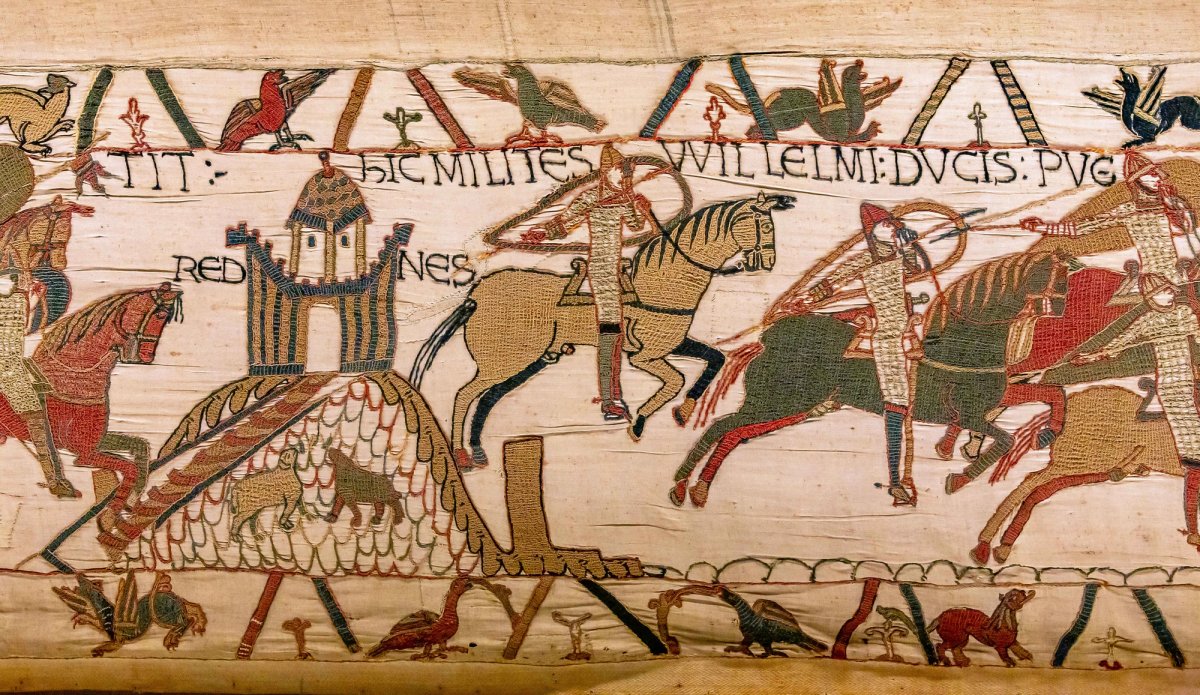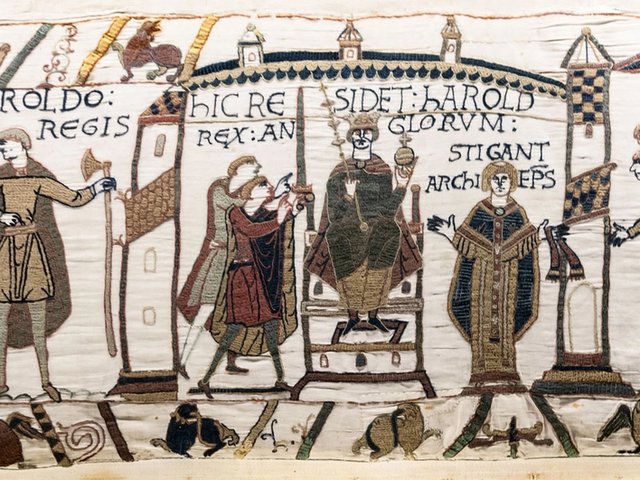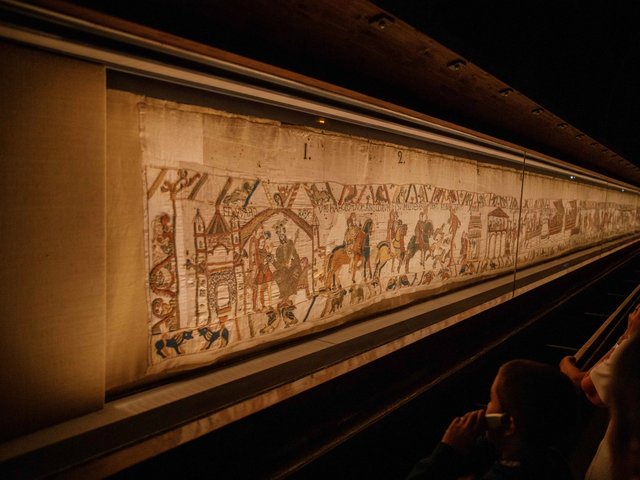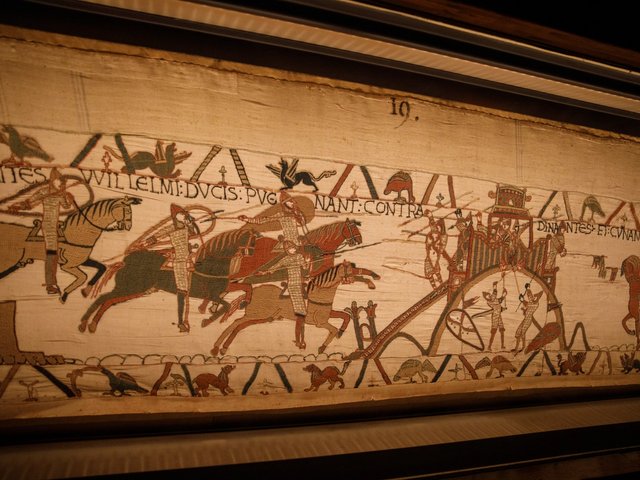A petition to stop the Bayeux Tapestry being loaned to the British Museum has garnered nearly 50,000 signatures. The appeal, launched in mid-July by the art historian Didier Rykner, cites warnings from textile restorers that a move could risk damaging the 1,000-year-old work’s embroidered linen fabric.
The tapestry, which celebrates William the Conqueror’s victory in the Battle of Hastings in 1066, is scheduled to be shown in London between September 2026 and July 2027, during a planned closure of the Bayeux Tapestry Museum in Normandy for renovation and expansion. The collaboration was announced in July by the French president Emmanuel Macron and the British prime minister Keir Starmer at the British Museum.
The current number of signatories on the petition “isn’t enough, but we have a year in hand, we still have time,” to block the loan, Rykner tells The Art Newspaper. In contrast, 294,000 people signed a previous—and still unsuccessful—petition by Rykner to reverse Macron’s decision to commission contemporary stained-glass windows for six chapels in the newly restored Notre Dame Cathedral in Paris, replacing 19th-century windows designed by Eugène Viollet le Duc.
Prominent cultural figures in France are, however, among those to have expressed concern about the Bayeux loan.
Isabelle Attard, the director of the Bayeux Tapestry Museum from 2005 to 2010 and a former Greens party deputy in the National Assembly, tells The Art Newspaper: “I think the tapestry must not be transported, for several reasons: its value is incalculable and if anything happens to it no amount of money and no other similar object can replace it. It's [also] extremely fragile because of its age, past movements over the centuries, the way it has been subjected to almost non-stop lighting since its return to Bayeux after World War 2, and the way it's currently presented, sewn to a textile support hung from a rail on little roller bearings, creating tensions everywhere.”
She continues: “I thought this loan idea was an old chestnut (serpent de mer) that would never happen. Seems I was wrong.”
Voices from across the channel
Concerns about the Bayeux Tapestry move have also emerged in Britain, according to a report in the Telegraph newspaper. Rykner says he hopes to join forces with British opponents of the cultural exchange, which would also see Anglo-Saxon and Medieval treasures from the British Museum travel to France.
Rykner, the editor of the online arts journal La Tribune de L’Art, is a vitriolic critic of Macron. His petition, denouncing the loan as a “crime against French heritage” resonates with far-right nationalist politics. Still, Macron himself, in a press conference with Starmer on 8 July, conceded that opinions were divided on the loan.
An earlier loan proposal in 2018 was conditional on satisfactory safety assessments and was met with reservations by a range of curators and conservationists. These included the Bayeux Museum’s director, Antoine Verney, and the textile restorers Isabelle Bédat and Béatrice Girault-Kurtzemann, who worked on stabilising the backing of the embroidery in the 1980s.
According to Rykner, several specialists have told him they believe moving the tapestry poses a greater risk to it than the museum’s renovation. But Rykner claims they are reluctant to speak publicly. “I’ve talked with three or four restorers who have worked on the tapestry and they’re unanimous. It’s not possible to move it far, and certainly not to London, it’s too fragile,” he says: “But [people] in the cultural establishment are frightened to say so because they’re not free. They’re all civil servants.” Bédat and Girault-Kurtzemann did not respond to requests for comment.
A spokesperson for the Bayeux Tapestry Museum said: “The French state owns the tapestry and the museum is only its custodian. We therefore can't answer questions on its conservation and restoration, nor on the organisation of the loan, which is the responsibility of the state.”






